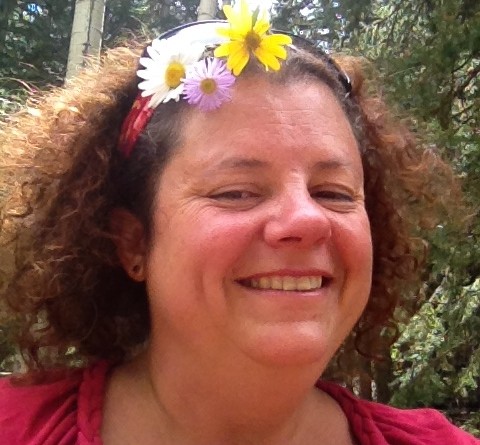How Grown-Ups Grow Up
By Annemarie Zanca, MA, LPC
We now know that the human brain does not reach physical maturation until age 24-26. Delicate synaptic connections are still forming in the frontal cortex and elsewhere. Hormones have not yet completed their cookery of gray matter. Wow. When I found that out, I looked back at my behavior in my 20’s and went, “no wonder!”
No one told me that my brain was still subject to the neurochemical hijack of adolescence. How did I expect mature behavior from myself, or my peeps, when our immature brains were still driving? I thought I was all grown-up because I was out of the house!
Twenty-two year olds in 2016 are ahead of the game if they can afford to move out on their own. Whoever decided that 18 year olds are old enough to vote and go to war, and that 21 year olds are old enough to legally drink, set a cultural expectation of maturity that doesn’t match our biologic state or our current economic reality. Add to that a generation of parents with a tendency to succumb again and again to the instinct to protect children at the cost of lost opportunities to teach life skills, and we have just added years to adolescence beyond our expectations.
We let our children flounder through the uncertainty of these years because we did, too, and we don’t know of any conscious way to become an adult. But, they do find their way eventually. Just like we did. Some things don’t change, even if our perception of them does.
Native cultures do not have adolescence. At puberty or soon after, children are inducted into the adult life of their tribe through ceremonial rites of passage. Such ceremonies focus the intention and emotion of the community on the individual. In simpler societies than the modern Western world, those rites teach them all they need to know to be an adult.
Neither our parents nor our culture consistently recognize our adolescent milestones, and they certainly do not facilitate them. We don’t even agree on what those milestones are. Developmental? Academic? First drink? First smoke? Losing virginity? Driver’s license? First bank account? First arrest? First cell phone? The lines between childhood and adulthood just keep blurring.
How does anyone even learn adult skills in the carefully controlled world of childhood? If we are lucky, our education gives us artificial opportunities to practice our skills, or sometimes apprenticeships. If we are blessed, we choose a path and find a mentor to guide us down it.
We all need mentors. And, all mentors are temporary. Mentors guide. They can’t do it for us.
Brene Brown says, “The death of the idealized versions of our parents, teachers, and mentors—a stage of the Hero’s Journey—is always scary because it means that we are now responsible for our own learning and growth.” This is the beginning of growing up. But, let’s talk about this Hero’s Journey a bit.
Another quote, this one from Willa Cather, is: “There are only two or three human stories, and they go on repeating themselves as fiercely as if they had never happened before.” Every satisfying story with a beginning, middle, and end follows the Hero’s Journey.
It is an archetype, a microcosm of the human experience embedded in our collective subconscious. Read Carl Jung, Joseph Campbell, and Bill Moyers to dig deeper into the incredibly rich layers of archetypes and stages of the Hero’s Journey, but for our purposes, let me break down the Hero’s Journey into 3 Acts:
In Act I, the Hero is removed from the familiar world. It is in this Act that the mentor is introduced. The mentor helps prepare the Hero for what is to come. Think Yoda or Dumbledore. Think childhood.
In Act II, the Hero goes through some ordeal that includes a brush with death. Danger is the important element here. How boring would it be if the Hero didn’t have anything to survive? The mentor is lost or dies during this Act. This is the Act Brene is talking about. This is the Vision Quest, ceremony, or trial by fire.
In Act III, the Hero returns to the familiar world with treasure that has the power to transform as s/he was transformed by the Journey. The Hero and the gifts are welcomed home, or the Hero goes on to another adventure after s/he is recognized for the ordeal. Not all endings are happy. It’s the recognition that is satisfying. This is where growth happens. The lessons from the ordeal are integrated into the individual and the community.
Sadly, sometimes people don’t get an Act III, or even an Act I. Act II without a mentor to help with preparation, or without integration of the experience after the fact is simply trauma. Act II is a scary and lonely place if you don’t know what’s happening to you.
Native rites of passage follow the Hero’s Journey all the way to the end. First the initiate is prepared for the ceremony. This involves isolation from the community. The ceremony itself (Act II) involves controlled suffering, sometimes through fasting (think Vision Quests), sometimes through the infliction of physical pain (like childbirth). After the initiate has completed the ceremony, there is always celebration. The initiate is welcomed back to the community in their new role as an adult, mother, warrior, shaman, etc. (A nod to Michael Meade and Karla McLaren here.)
Not many of us have the opportunity to participate in intentional rites of passage at exactly the right times in our development. We go through the Acts anyway. We figure out what we need to do to survive Act II. If our experience is not validated in Act III, we cycle back through Acts I and II trying to find that satisfaction of meaningful experience. We can and do get lost. Our brains actually give us a dopamine boost for making meaning out of our experiences, whether the meaning is true or not, so we will assign false meanings to our stories sometimes.
The more complicated the Act II, the harder it is to make sense of it. Sometimes we don’t even try. Spirituality and/or therapy can help at this point. Sometimes we don’t know the meaning of our experiences.
It can be hard to accept that the meaning is unknowable, and that’s OK, when it doesn’t feel OK. Not knowing the answer makes us anxious, so we compare our experience to others’. It can be easier to accept someone else’s explanations for our experiences than our own. We tend to shop around for easy explanations, and for the ones that make us feel better about ourselves.
Growing up is welcoming ourselves back from Act II. It’s returning from our journeys with treasure to use and to share. Our loved ones can teach and inspire us, but we can’t count on them to welcome our gifts, or to make sense out of them for us. Their perception of our situation may not match our own. They can love us and still have their own agenda and judgments. We can’t count on them to validate our experience.
Grown-ups find their own meaning in their own experiences. They listen to the opinions of people they trust, but ultimately, they make their own decisions and accept responsibility for them. If they decide with integrity, they choose what is right instead of what is easy.
We make bad choices. Others are better. Sometimes we have to choose between the lesser of two evils. It is possible to be grown-up in some ways and immature in others. It is possible for the very young to be very wise, and we all know people we think should have grown-up long ago.
We all have traumas, big and small. All mentors are flawed, and have traumas of their own. The beauty of humans is how we keep shaking the dust off after we fall and keep moving forward, even if it’s not straightforward.
Sometimes we snake and twist. Sometimes we lurch, sometimes we crawl, and sometimes we leap. Sometimes we even go backward for a while. Never let being a grown-up keep you from enjoying the ride!
String Cheese Incident calls life “a sweet short ride through a beautiful place, if you can’t dig it it’s a real disgrace. It’s a miracle, but commonplace.” Growth is struggle. Don’t expect it to be easy. Growth is a series of choices.
Of all the choices you can make, choose to be kind to yourself and others, and at the end of the day, you can’t go wrong. Choose to write your own endings to your own stories instead of letting the dominant culture decide what is meaningful to you. Even if all of your endings are not happy, they can still be satisfying. And, if the endings you write are nonfiction, you will grow. Namaste.
Annemarie Zanca is a mental health professional, educator, mother, writer, and a lifelong resident of the Roaring Fork Valley. She is not all grown-up yet. She wrote this for her growing-up daughter Megan.


great post
Hi Annemarie, my daughter, Brae, husband (Kip) and I just stumbled onto this website and read your article. This is amazing! Thank you for this beautiful framing of “growing up” that we could all share together while lying in bed. You are an amazing writer and captured truths that are so meaningful to us.
Much love and gratitude,
Robyn, Kip and Brae Hubbard